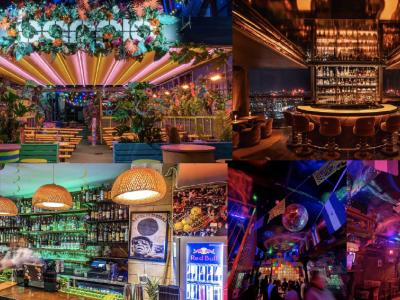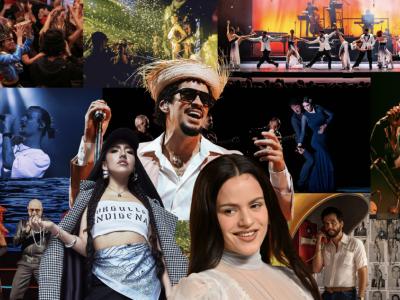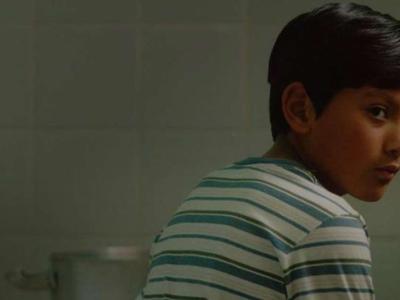On a Saturday night in Vauxhall, hipsters from Shoreditch, Latinas from South London and lads from Essex are vibing under the LED show with Londoners from Sudan, Albania, Nigeria and all over the world to a beat that sounds vaguely African and words in Spanish that probably none of them understand. Most don’t know it’s Farruko’s hit Pepas, and even fewer will know that this genre, which began in Panama and Puerto Rico in the 1980s as a hybrid of dancehall, reggae en español, hip-hop, is now the most listened to on the planet.
Much like hip-hop a decade before, reggaetón defied years of criticism, condemnation and prejudice to become part of today’s global pop mainstream. Last year, Bad Bunny’s Un Verano Sin Ti was the most streamed album globally on Spotify and, more recently, Karol G became the first female reggaetón artist to win a Grammy.
Back in the steamy South London club, Bad Bunny’s catchy Yo Perreo Sola stops playing and a feisty, energic Latina bounces on stage in a tight Colombian football shirt, greets the crowd in her Tottenham accent and launches into to drill-style rap, switching from London slang to Spanish without a pause.

Four decades on from the back street parties of San Juan, Puerto Rico, who would have thought that, on the other side of the Atlantic, there would be a budding community of homegrown UK reggaetón artists? The scene, which includes the likes of Venezuelan Angelo Flow, top producer Dukus, podcaster turned artist Milena Sánchez and many more, has been bubbling under the surface here in the UK since the early 2000s - since 2004, to be precise…
The Spark of a Revolution
On Sunday 28th October 2004, with the support of Amnesty International, José Seijas and Amaranta Wright produced the UK’s first Latin Hip-Hop and Reggaeton Festival. They invited young Latin artists bursting out of the streets to show their vibe, their talent and a new version of urban Latin, London style. For the first time, this celebration of Latin music didn’t take place in a typical Latin music hotspot, but in the iconic KOKO venue in Camden Town. This event is now considered to be a landmark moment for UK Reggaetón, much like the first ‘Eskimo Dance’ rave, founded by grime godfather Wiley in 2002, was for British Black music.
Twenty years ago, no media or Latin music promoter in the UK was interested in the genre, says Amaranta Wright, “for years we were knocking on doors of promoters, venues, media, funders, to help us showcase UK Latin urban artists and culture. Every time, we faced rejections and dismissal. They didn’t know what we were talking about. As Latinos promoting Latin music, we weren’t part of the ‘World Music’ old boys club, mainly white English men promoting the Latin music that they liked…so we had to do it ourselves…everything, the club nights, concerts and even our own media to promote them through. Reggaeton in the UK was a FUBU (For Us By Us) movement.”
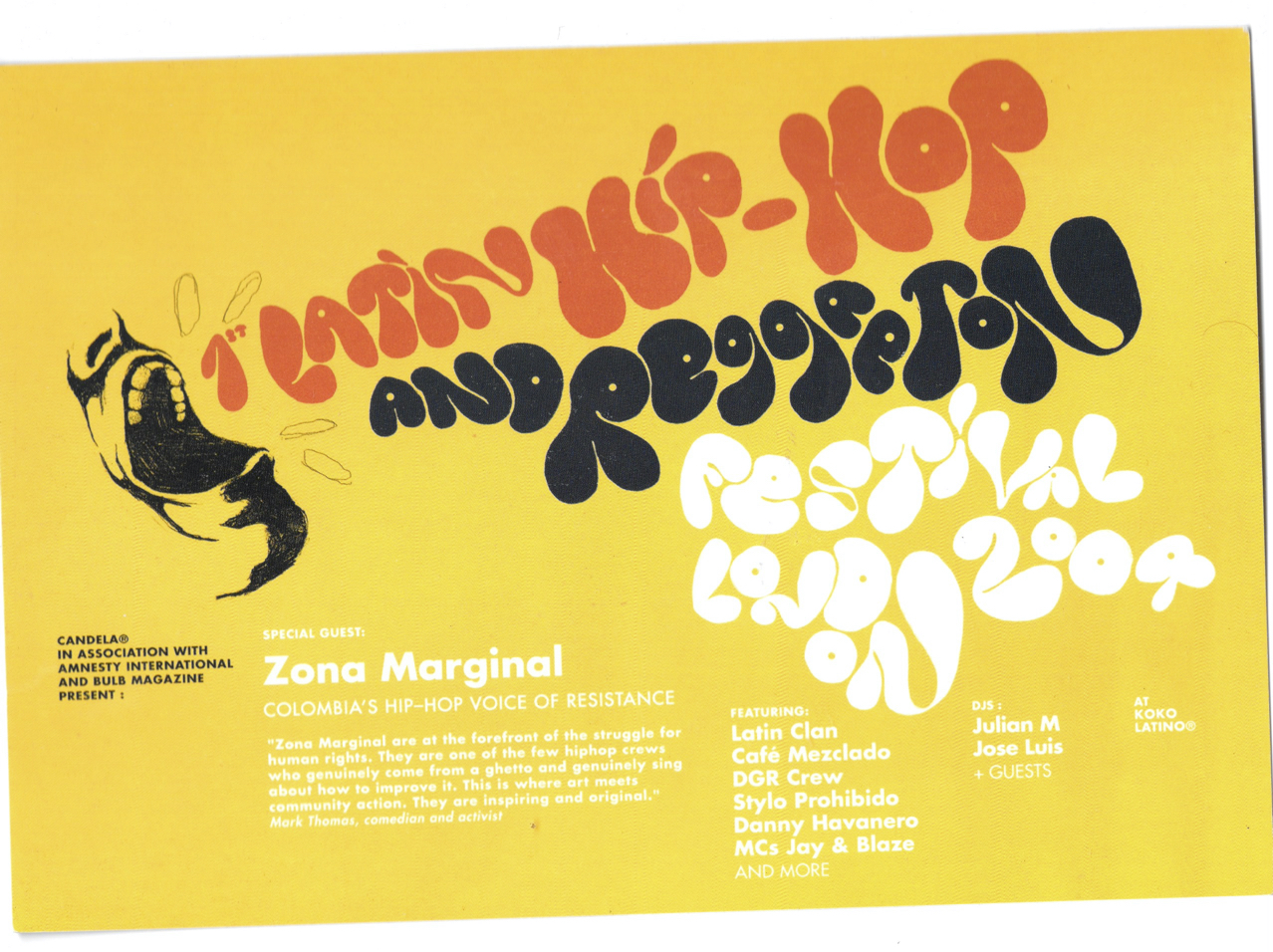
Jose and Amaranta followed its KOKO event with La Bomba – the now iconic regular reggaeton nights at Ministry of Sound - cementing a scene which has grown exponentially since. They say it takes 20 years to make an overnight sensation. 20 years later, homegrown reggaetón has its own stage at LatinoLife in the Park, the UK’s biggest Latin music festival and in 2022 Candela Records became the UK’s first label dedicated to urban Latin music. From promoting reggaetón through its diverse media, events, label and talent development programmes, LatinoLife, the organisation founded by Amaranta and José (now an Arts Council funded National Portfolio Organisation) aims to launch the first UK Latin artist onto the global stage.
The La Bomba Years – “that’s where the cool music was getting played”
José Seijas, head of music and talent development at LatinoLife, remembers back in 2003 going to New York to buy records. “I came across Tego Calderon’s El Abayarde which had just come out. From that point, I knew reggaetón was going to be huge and I went ahead to buy the domain www.reggaeton.co.uk which I still have today.”
Around this time, London’s Latin music scene was predominantly dominated by salsa. José was DJing in London’s salsa clubs and would start fitting in short sets of reggaetón in between longer salsa sets. Eventually he convinced Ministry of Sound, in the heart of Elephant & Castle, where the majority of the Latin community resides, to let him start a reggaetón night there. Candela Records co-owner Luciano Pinto, a Londoner born to Chilean parents, was a teenager hanging out at his brother’s pirate salsa radio station in South London, Rumba FM, when José started La Bomba nights. “All our parents complained about the music, but that’s what we wanted to listen to.”
The monthly events at Ministry constituted a space for young, second-generation Latins in London to listen to the latest bangers coming out of Puerto Rico, watch performances from local artists and DJs, get to know others in the wider community, and develop their identity as British Latins. Ecuadorian-born artist Guala, a bi-lingual rapper from North London remembers his first time at La Bomba: “Me and my friends quickly decided… that’s where the cool music was getting played. Those parties gave me ideas about what I could be.”
Dukus, another La Bomba attendee who also ended up with a successful career in music as an award-winning producer, songwriter, sound engineer and musician collaborating with the likes of Craig David, Ed Sheeran, Central Cee, Giggs, Stormzy, Wiz Kid, said, “it was the first time you would go to parties and realise that there is a whole community of people like you.”
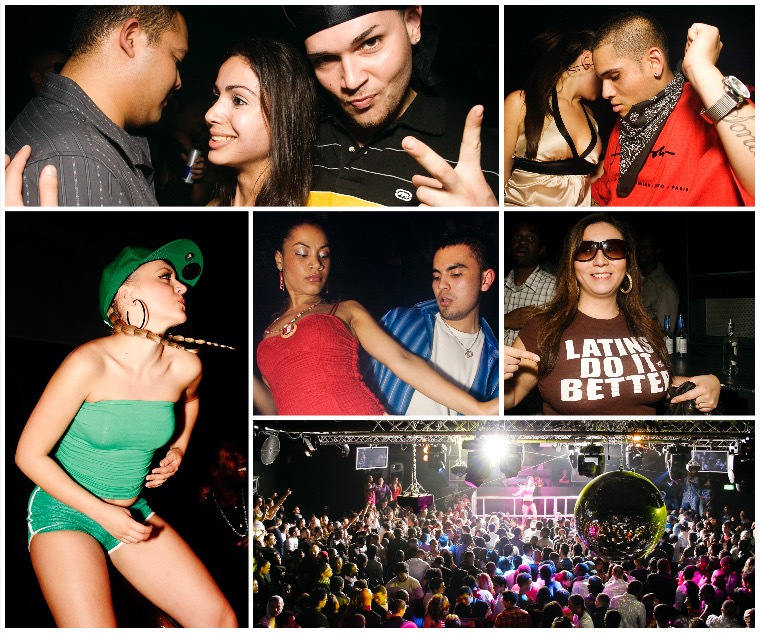
At the time, the London Metropolitan Police required that the controversial 696 form be completed by event organisers and promoters for music events to take place. The form was contested for its racial bias as it affected events where Black music would be played, especially those with an MC. While reggaetón is an inherently black music genre, where other black genres would be played, Jose Luis recalls how La Bomba parties “slipped under the radar” at the time, due to Latin music being associated with salsa. This meant La Bomba would become a magnet for Caribbean and African Londoners who could enjoy Black music, without being affected by racially coded monitoring and surveillance.
Latin Music in London - “The Rhythm is Universal”
Despacito could have been another one-hot Latin wonder like Ricky Martin’s Livin’ La Vida Loca in 1999 or Daddy Yankee’s Gasolina in 2005. This time was different; the 2017 hit reflected a momentum in Latin Music that has been unstoppable since. The longevity of reggaetón weekly parties at venues like Tiger Tiger in Piccadilly and Lightbox in Vauxhall, and multiple stadium sell-out shows by Karol G this June, show just how much London has caught onto the genre. Fans stretch far beyond the Latin community, as shown in videos taken at Vauxhall VIVA party boasting to have ‘London’s most diverse crowd’, where partygoers interviewed derive from as diverse as countries including Nigeria, Japan, the Philippines, Lebanon and more.
Joe Schiavon, the promoter at Live Nation UK who is bringing Karol G to London, had to add another date, making the Colombian artist the first to fill a second date in a major London arena, confesses that finally "Live Nation is pushing the growth of Latin artists in the UK market. This comes after “several years travelling to the US, building relations with contacts in the global Latin music scene. When I first saw Karol G perform, I thought she had the potential to be a huge global artist. Her concert will be a good barometer of the potential for Latin music to cross over to the UK mainstream."
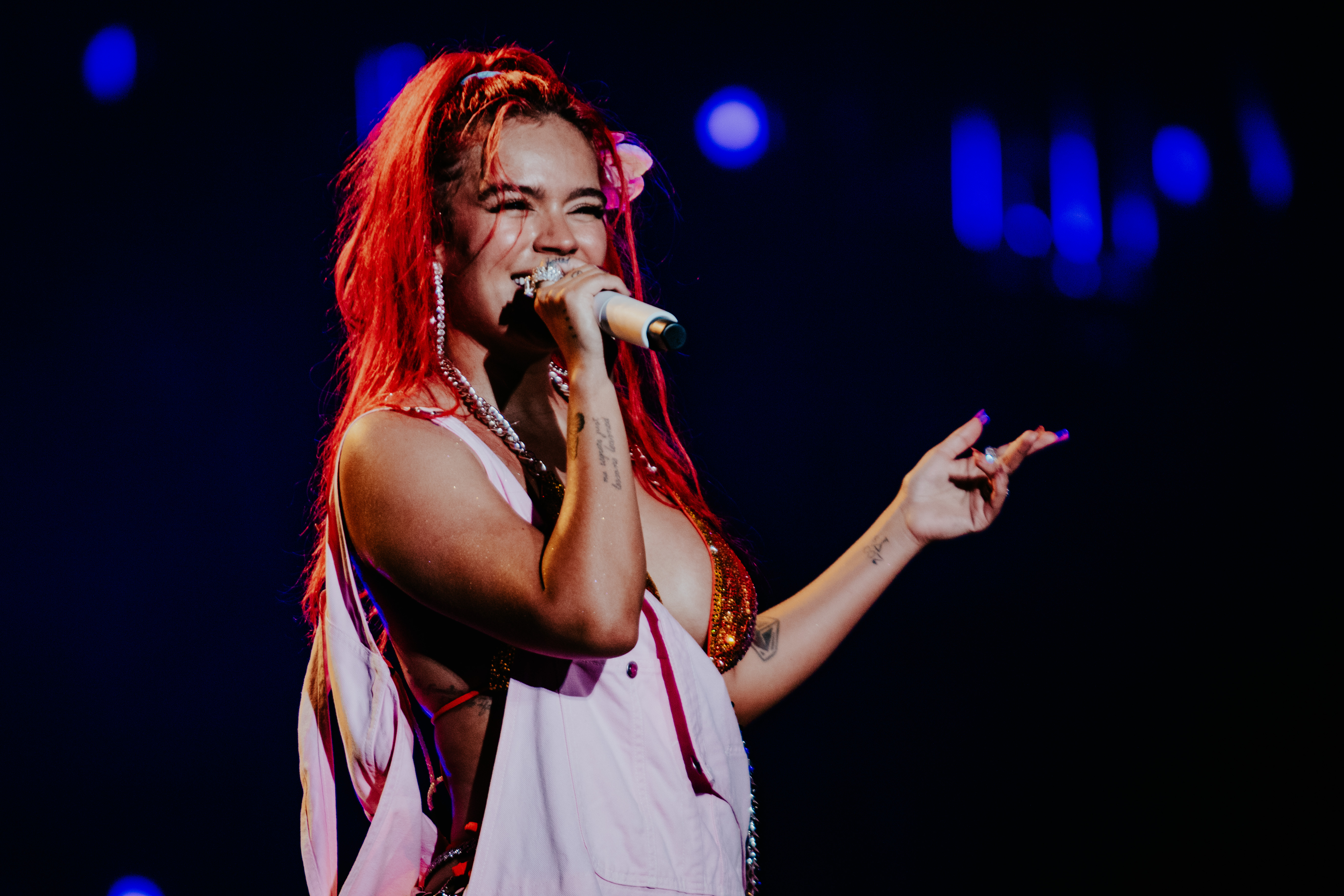
The challenge in the UK has been that, despite the huge hype globally, especially on the social, the mainstream media is still reluctant to give media support to Latin artists.
"Mainstream top 40 rhythmic radio haven't caught up and are rarely playlisting Spanish language music. You could have the most streamed record in the world and struggle to see a C-List playlist on the radio,” adds Joe. “there have been a few exceptions including Despacito, "I Like It Like That" or "Taki Taki", but beyond those, music programming at UK Radio needs to stay abreast of the some of the biggest Latin talent in the world. Once that is addressed TV would soon follow."
Luciano at Candela Records adds “even an artist like Bad Bunny, the biggest artist in the world right now…you don’t hear him on the radio here, and it’s purely because of the language and cultural barrier.”
Despite this, Joe assures that Live Nation are going out on a limb to programme “a healthy Latin concert line-up in the UK over the next 18 months.” And yet, one asks the question…if the biggest superstar on the planet, surpassing Ed Sheeran or Dua Lipa in popularity can’t get radio play in the UK, what chance is there for UK Latin artists?
Talent on our Doorstep - “Desde Londres”
On our doorstep, we have a movement of talented second generation b-lingual, bi-cultural artists, whose parents arrived on these shores from every corner of Latin America - Colombia, Venezuela, Ecuador, Brazil, Chile - and are merging diverse music of their heritage with drill, grime, soul, indie and hip-hop. Bringing the talent together in one place, ‘Latino Life in the Park’, became the UK’s biggest Latin music purely on local talent.
“For a long time we saw Latin music festivals in London spend all their money on bringing acts from Latin America, who most English people didn’t know anyway, and then not even paying local artists,” says Amaranta. “We decided that if we could develop local talent whilst creating an amazing experience for festival goers, the quality would keep audiences coming back. And that’s what’s happened.”
The festival, now in its 9th year, supported by the Mayor of London and funded by the Arts Council England, features entire line-ups of UK-based Latin artists shining a spotlight on the variety of genres and the melting pot of cultures in London. In 2021, post pandemic, it became the first UK festival to dedicate an entire stage - The Candela Stage - to UK Urban Latin music. The was so successful that in 2022, the Candela Stage became the main stage, featuring UK artists such as Sav 12, J Spades and Lisa Mercedes along side UK Latin artists.
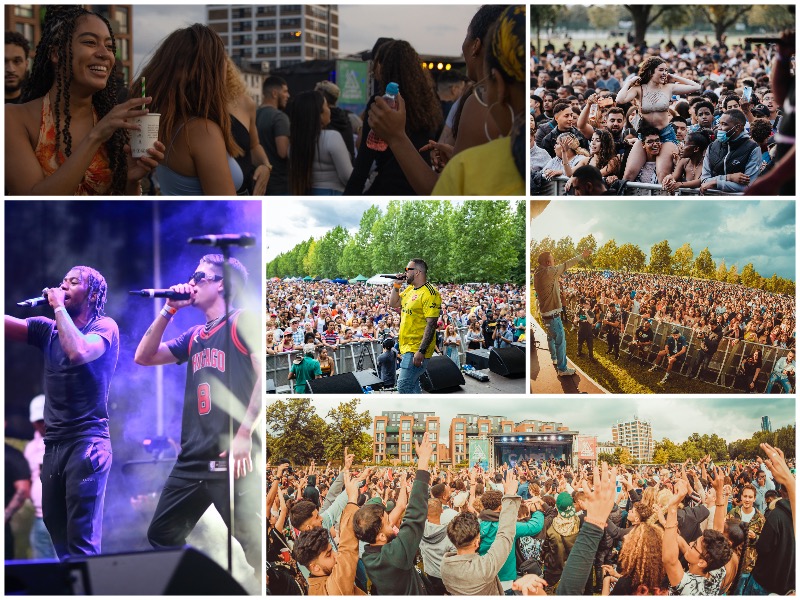
Milena Sánchez, dubbed a “combination of Adele and Karol G” on social media, says that the uniqueness of their British-Latin identity brings something new to the global Latin music industry. “I sing in “Spanglish because it's true to who I am.”
Another London artist, Sachellys, adds “I don’t want to sound like artists in South America, that’s already been done…we have something they don’t. We listen to salsa and cumbia, at home but have absorbed the London sounds we are surrounded by.”
One of the artists currently on the Candela Records roster is Venezuelan artist Angelo Flow, whose 2023 release ‘Hot Steppa’ was the fastest streamed track by a UK Latin urban artist and the first of its kind to secure airtime on Radio 1 Extra and Kiss.
“Our artists cannot sound like the artists from over there because otherwise we’re competing with millions of other artists,” says Candela’s A&R man Luciano Pinto. “If we want to participate in the global scene, we need to come in with a different sound that resonates here in the UK because it’s British and also potentially cut through the noise in Latin America because we are not sounding like the local artists there.”
Dominican London rapper R Louis, who includes London landmarks like The Shard in his music videos describes his journey as an uphill battle, like mounting the Shard itself, without a team behind, support of a manager, “along with being an artist, you have to be a content creator.” Nevertheless, the artists agree that the universality of “the reggaetón rhythm” and the solidarity between the artists will shine a light on the scene. “With Afrobeats,” Sachellys says, “the artists stuck together and worked together to make it noticeable”.
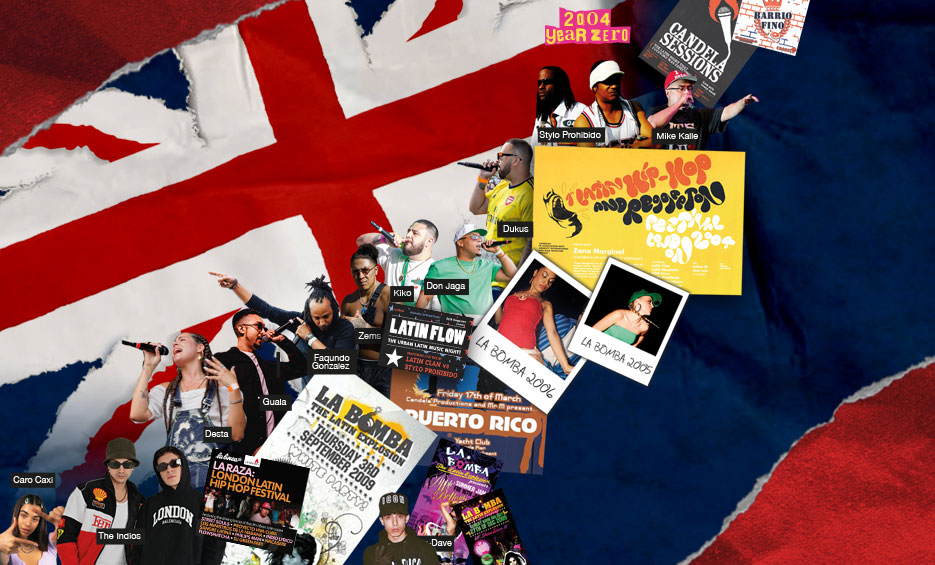
“The UK just isn’t going to get it” - the Hesitation to go Latin
Milena recalls thinking to herself, “the UK just isn’t going to get it.” Sachellys says for many years she only sang in English because she thought the language barrier would make it difficult for her to get airtime. But more and more artists are gaining confidence to sing in Spanish, says Luciano: “the circulation of other genres, such as afrobeats, with non-English lyrics proves that there is room for Spanish lyrics on the radio.” Milena vows to “continue breaking down the barrier until UK reggaeton is played on the radio.”
The artists describe the difficulty of being of a community that isn’t widely recognised neither in the UK. Still on most official UK forms, including funding forms, Latin Americans have to select ‘other’ as an ethnicity option. Even responses on TikTok disbelieving that there is a Latin population in the UK, and accusations that artists “must be faking it” as they switch seamlessly between a British and a Colombian accent, shows the kind of barriers UK Latin artists face.
the sell-out shows for Karol G this summer, suggest that UK-based listeners do feel the beat. Latin culture “is a happy culture - they [listeners] want to go out to have fun, and Latinos have fun.” It’s been a long journey, Guala said, as he recognises those who pioneered the scene in London. “What people like Jose Luis have done has made an impact on our music and our community.”
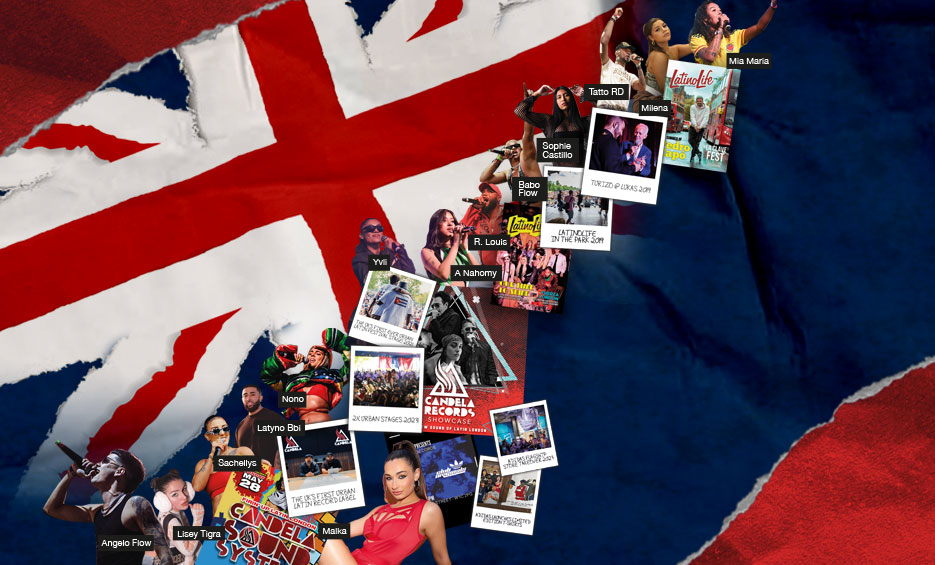
Bypassing the UK Market
After 20 years progress, it’s clear there is still much work to do. Despite being the world’s most listened to music, the UK industry is still very ignorant of Latin music - both the UK scene and Latin music’s impact on the global market. Dukus suggests, “we need more Latin people with influence at Spotify and Apple Music who are going to support the scene.”
The lack of representation in the UK music industry - from A&Rs, bookers to music media and festival promoters – means that artists face prejudice on a daily basis, reflected in both programming and pay disparity. This year, Glastonbury allegedly offered below minimum wage to one UK-Latin act it approached for GlastoLatino.
And so, Latin artists and organisations like LatinoLife continue to do for themselves what the UK music industry is not doing. Luciano says: “we are slowly breaking down those barriers in the UK, so artists can build a base here and then we use that momentum to connect with the Latin market.” This means building bridges to Latin American markets directly. LatinoLife and Candela Records is doing just that: it now has offices in Bogotá and busy liasing with Colombian partners such Ibagueto Records, to produce a UK/Colombian collaboration album and with 'Hip Hop en el Parque' - Latin America's biggest Latin Hiphop event (250k audience in one day) - to take UK-Latin artists to tour in Colombia. It will be opening an office in Buenos Aires in September and, in Spain, LatinoLife will be the lead country partner at Mad Cool Pro music conference in Madrid this November.
Meanwhile in the UK, Candela has partnered with Tileyard's TYX and working with renowned producers such as Steve Lewinson (Simply Red, Massive Attack) to produce high quality new music in their studios. It has also brought in experienced managers in the UK industry such as Kevin Simpson (Jamiraquoi, Sia) and industry professionals from the likes of Live Nation and Sofar Sounds to manage and mentor UK Latin artists.
UK Latin artists cannot afford to wait for the UK music industry to catch up with the phenomenon that is taking the world by storm. Social platforms have allowed artists to become discoverable to a wider audience. R Louis, for example, has sold out performances at club nights in London and Birmingham, but his largest audiences are in Spain and Ecuador, with between 15,000-20,000 listeners in both countries. Desta French took the US by storm when she performed her Cumbia-infused London R&B to SXSW in Austin, and then went on to tour Mexico.
With the likes of YouTube sensation Yung Filly now branching into music, capitalising on his Colombian roots which few knew about before, it could take one strong collaboration with a big UK artist to make the breakthrough, Dukus suggests. “Maybe Stormzy will hear us and jump on one of the tracks with a Colombian guy over here.” As has always been the case with non-white music, it’s the artists themselves plus a few lone visionaries that create the earthquakes that move things forward. If the UK media doesn’t catch on soon, it is the industry which will lose relevance. One thing is clear, Latinos in London ain’t waiting for no one.



